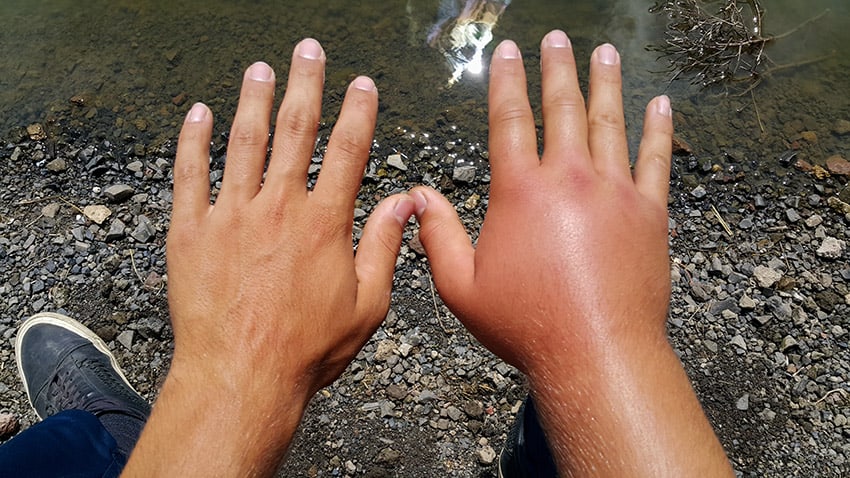If your hands swell, it can be hard to grip or hold any objects or continue your daily activities. It can be difficult in unimaginable ways, and usually, the swelling is caused by fluid retention, a rise in body temperature, or arthritis. While some causes may improve on their own and not be a cause of worry, others can escalate to a level that can damage your hand structures. It all depends on the cause of your swelling. It is never advised to take your swelling lightly or brush it under the carpet. It may be the beginning of a new condition, and you may never know about it unless you consult a health practitioner. Treatment would also depend on the cause of your hand swelling, but R.I.C.E. (rest, ice, compression, and elevation) can usually treat most causes of swelling. Sometimes even medications may help treat the swelling along with other methods.
Arthritis
Do you know arthritis is the most common cause of swollen hands and fingers? Inflammation in the joint can cause swelling and pain. As it worsens, it can be challenging to continue daily activities. There are different types of arthritis, such as osteoarthritis, rheumatoid arthritis, psoriatic arthritis, and gout.
- Osteoarthritis: Daily wear and tear can lead to cartilage damage.
- Rheumatoid arthritis: Joint swelling occurs in both hands.
- Psoriatic arthritis: Swelling of one or more fingers associated with psoriasis.
- Gout: It happens when extra uric acid in the body forms crystals in the joints.
Injury
An injury site such as bruises or any deformity can lead to swelling. It also includes fractures, dislocations, sprains, and strains. Also, when part of the hand is crushed, it leads to swelling.
Infection
If your skin breaks or has cuts, it is more like to get a bacterial infection. Then white blood cells rush to the site to clear away the infection, leading to swelling.
Allergies
It happens when your body reacts to a foreign substance. Your body produces substances known as antibodies. When you get allergies, your body produces antibodies to protect you from external substances. Any allergy can range from mild to severe, and in some cases, it can trigger life-threatening reactions.
Exercise
It can increase the blood flow to your heart, lungs, and muscles and reduce the blood flow to your hands, making them cold.
Medication
Sometimes medications can lead to swelling in treating blood pressure, diabetes, etc. However, swelling may not be a common side effect of the medicine.
High-Salt Diet
Usually, the swelling caused by salt may last for a day or two. If your diet has a high concentration of salt, then your body tries to retain water to dilute the salt. Then water retention leads to swelling in the hands and fingers.
At FORM Hand in Fremont, we can help you manage your arthritis or assess your hand swelling to determine a treatment course if an injury causes it. Contact us today to schedule your consultation!


